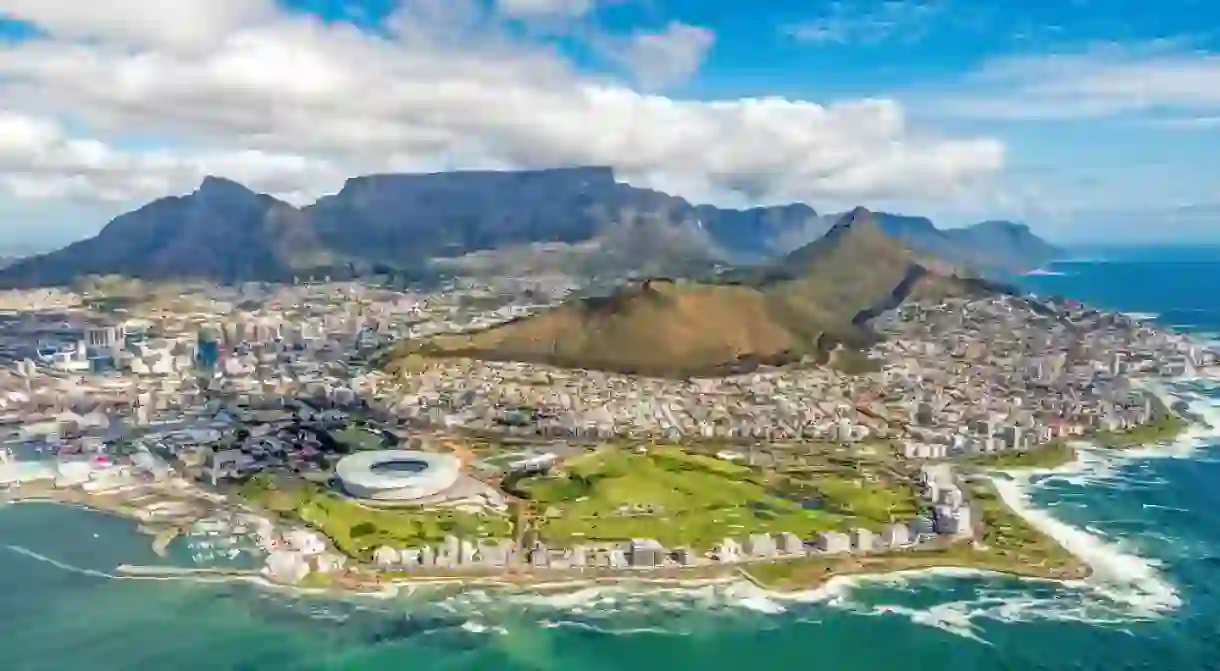How to Reach the Top of Cape Town's Table Mountain

Table Mountain is an iconic symbol of Cape Town. Its famous flat top, natural beauty, and unsurpassed views of land and sea have attracted millions of visitors from around the world. If you’re planning to visit the Mother City, check out this handy guide to reaching the summit.
How to get there
Reaching Table Mountain is very easy if you’re staying in the city center. The CBD is located just below the mountain, so you can choose to go by bus, car, taxi or bicycle. Cape Town’s MyCiti Bus system is an affordable, reliable option that transports passengers to the lower Cableway station. There are two routes to choose from – one that runs from the V&A Waterfront and the other from the city center.
Another great alternative is the CitySightseeing Red Bus, which offers a ‘hop-on, hop-off’ service. Buses run every 20 minutes and stop at many tourist attractions in the city. To get to Table Mountain, you’ll need to take the Red City Tour – a circular, 90-minute route that starts at the Two Oceans Aquarium and passes by various sites, including Long Street and the Bo-Kaap.
There are also plenty of taxi services, including Uber, that will take you directly to the Cableway station, or you can choose to cycle there from your guest house or hotel. There are many bike rental companies in the city, such as Bicycle Hire and iRide Africa, that offer both road and mountain bicycles at a daily rate.

How to get to the top
There are two ways to summit Table Mountain – by cable car or on foot. You can also choose to hike to the top and descend by cable car.
Each rotating cable car offers incredible views of the city, and takes only five minutes to reach the summit.
Hiking Table Mountain is a wonderful way to explore the indigenous fynbos, spot wildlife like the dassies (rock hyrax), and enjoy spectacular views. However, you do need to be reasonably fit to hike one of the more scenic Table Mountain routes.
Alternatively, the easiest and quickest route to the top is via Platteklip Gorge, which leads hikers through a ravine on the face of the mountain. This route takes around one-and-a-half to two hours to complete and is the most popular.
At the summit, there’s an opportunity to explore the mountain top along three easy trails affording 360-degree views of the city, Atlantic Seaboard and the mountain chain stretching across the Cape Peninsula.

Survival tips
Whether you decide to hike or take the cable car to the summit, be sure to take a windbreaker or warm sweater along, as the weather can be unpredictable in Cape Town.
Stay hydrated by drinking lots of water and remember to wear a hat and sunblock, especially during summer. Never hike alone and keep a charged cellphone with you.
If you intend on taking the cable car down after your hike, make sure that the Cableway is open on the day, as it does not operate in high winds and bad weather. Moreover, allow yourself enough time to ascend and descend before nightfall.

Fuel up
Hiking and sightseeing can work up quite an appetite. Luckily, there are pit stops at both the lower and upper Cableway stations.
At the top, the Table Mountain Café offers a delicious selection of self-service meals, snacks, pastries, desserts and beverages, while the Wi-Fi Lounge offers freshly brewed coffee and breakfast items.
You can also pack your own picnic basket, find a quiet spot and soak up the scenery with sundowners.
Traveling to or from Table Mountain, the suburb of Gardens is an ideal spot to grab a bite to eat and enjoy a cocktail or two. There is a plethora of restaurants in the area that serve a wide variety of cuisines for all tastes.














